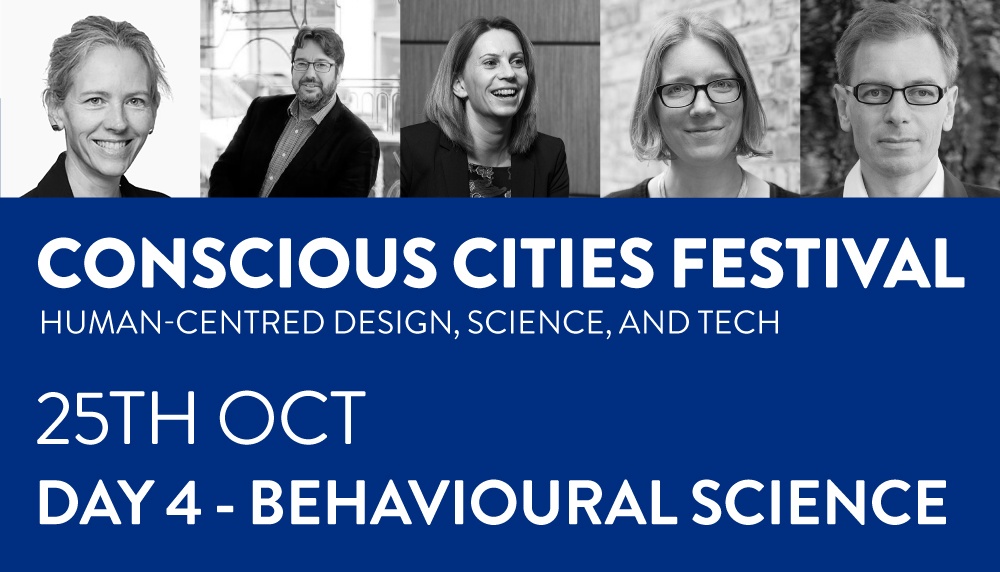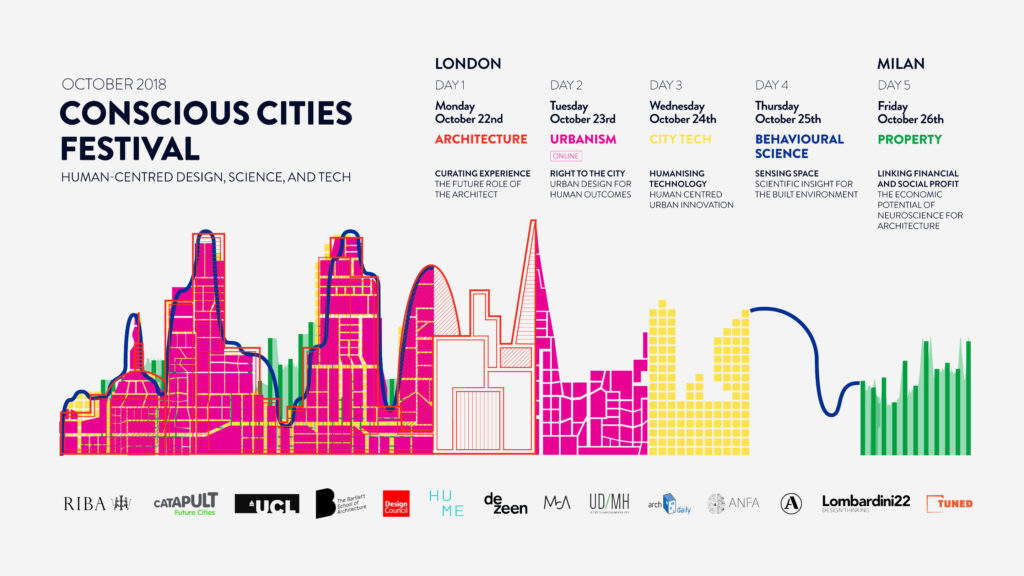Alongside visual tools, architects use intuition and a well-developed sense of empathy to imagine the experience of another within the environment being created. However, not only are these understandings limited by our subjective disposition, they are also difficult to express to others effectively. Increasingly so, science is creating insights that can augment the architect’s ability to curate an experience. The adoption of new tools from psychology and neuroscience into the architect’s creative process is now a viable and promising opportunity.
Conscious Cities, The Bartlett School of Architecture, and the Institute of Behavioural Neuroscience will host a series of short talks and a panel debate with researchers at the forefront of creating behavioural insights.











